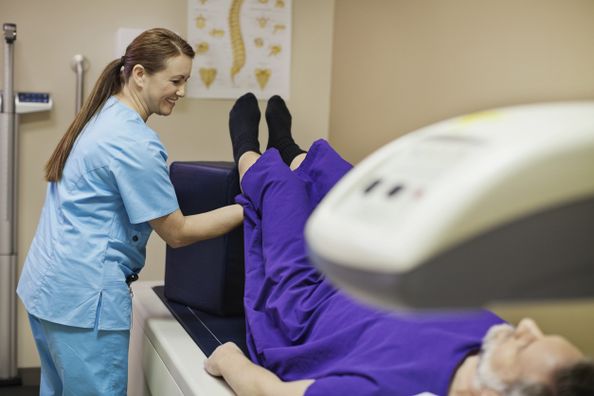Dementia refers to a group of diseases and symptoms that are associated with a decline in memory and cognitive function severe enough to interfere with everyday life. It is most common in those over the age of 65 and may cause symptoms that hinder the ability to think, remember and reason. Today, approximately 47.5 million people are living with dementia worldwide.
There are several types of dementia, including Alzheimer’s disease, vascular and frontotemporal dementia. Each is slightly different, however, no matter the diagnosis type, the disease is expected to progress at a subtle rate where symptoms increasingly worsen overtime.
Because dementia is a progressive disease, the severity will vary. In its most mild stage, dementia will slowly begin to affect a person’s functioning, while in its most severe stage, a person must depend completely on others for basic, everyday activities.
Dementia is not a normal part of aging, but is more common as people age. While there is no current cure for dementia, there are treatment options available to slow the progression and ease symptoms if caught early. In order to seek treatment as soon as possible when signs arise and give your loved one a chance to explain the changes they are experiencing, keep an eye out for the following cognitive and psychological symptoms.
Confusion
In the early stages of dementia, confusion is common. Signs of confusion may include:
- Forgetting faces
- Forgetting what comes next in the day
- Difficulty judging the passage of time
- Forgetting where they are
- Not understanding events in the future or past
- Struggling with dates
- Trouble remembering people they know
Difficulty communicating
Communication can be challenging for those with dementia, including speaking, writing and participating in conversation. For instance, a person with dementia may forget what they or others have said, experience a decline in proper spelling, punctuation and grammar, and develop handwriting that is difficult to read.
Difficulty performing everyday tasks
As the illness continues to progress, performing everyday tasks becomes more difficult. This refers to tasks regularly done at home or at work, such as making coffee, operating a computer or getting to a familiar location.
Difficulty reasoning or problem-solving
Reasoning and problem-solving are functions that may be affected by the onset of dementia. This includes difficulty following a plan, such as directions when driving, and general problem-solving, such as calculating the numbers on a bill.
Difficulty understanding visual information
Dementia can make it hard to read, judge distances and notice the difference in colors. This can make driving or riding a bike difficult and even dangerous.
Memory loss
Trouble with memory is one of the most common signs of dementia. While being forgetful is often a normal part of the aging process, subtle changes in memory can be a meaningful indicator of something more serious and should be noted and shared with your physician.
It is common for someone suffering from dementia to:
- Remember stories from the past, but not remember what they’ve done in the present
- Have difficulty recalling information they have recently learned, such as dates, events or new information
- Rely on others as memory aids or to keep track of information
Misplacing things
In conjunction with confusion and a decline in memory, those with dementia may have a hard time remembering where they leave everyday objects, such as car keys or important documents.
Mood changes
Those with dementia may experience mood swings, such as feeling depressed, anxious, fearful or irritable, and personality changes, such as acting inappropriately, being disinhibited or changing from being outgoing to very withdrawn.
Poor judgement or decision making
Understanding what is fair and reasonable can be challenging for those with dementia. This may include overpaying for things, buying things they do not need or paying less attention to hygiene and appearance.
Social withdrawal
If your loved one is suffering from dementia, they may become socially withdrawn from others. For instance, they may become uninterested in home or work life and stop participating in hobbies that they use to enjoy. Dementia may also cause your loved one to act emotionally detached or listless.
If these symptoms apply to you or your loved one, we recommend talking to a physician for support and guidance. Catching dementia early can allow your physician to determine the underlying cause, ease symptoms and slow the progression of the disease, improving your overall quality of life.
Please visit our Neurology page to learn more about our physicians, services and locations.
Health Topics:







